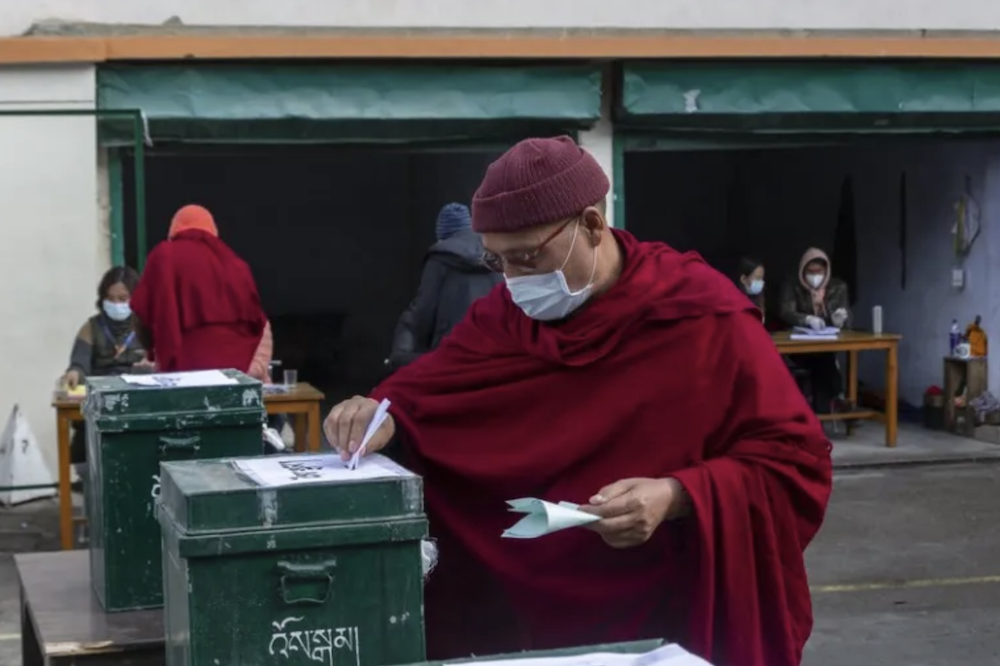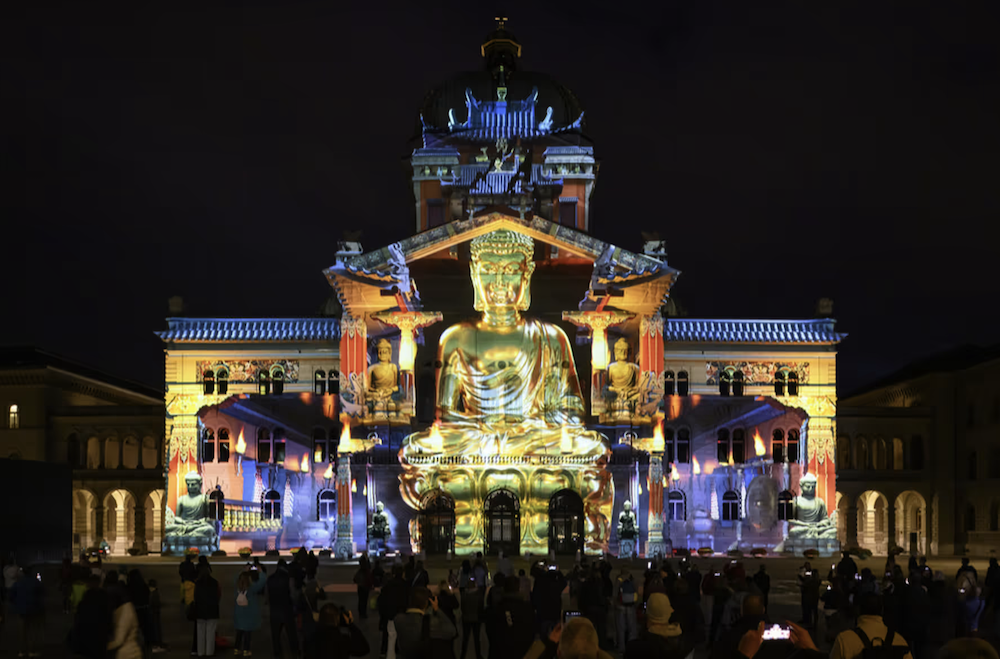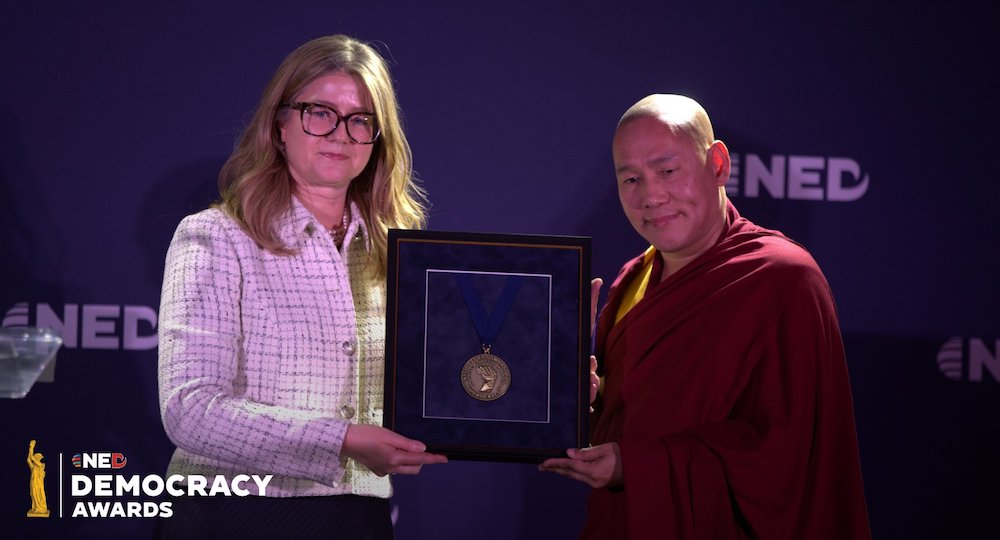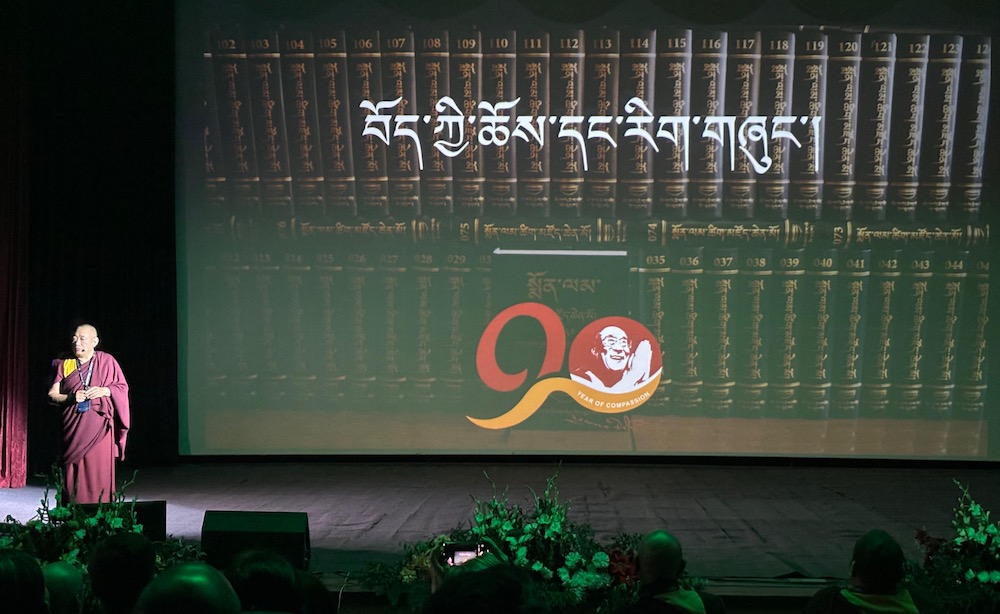President Hu Jintao of China landed in India on Monday at the start of a 4-day visit. It is a familiar sight every time a Chinese leader visits India – Tibetan exiles take to the streets to protest against what they claim are continuing and appalling human rights violations by China in Tibet.
This time too as President Hu Jintao begins his visit Tibetans are voicing demands for there lost homeland.
There are approximately one lakh Tibetan exiles living in India. What conditions to they live in and have they been able to find opportunities in this country?
UN resolutions of 1959, 1961, and 1965 condemned human rights violation in Tibet. As of 2006, no country publicly accepts Tibet as an independent state.
More than 600 Tibetans staged a peace protest in New Delhi at Jantar Mantar against Jintao’s visit to India. Many Indians as well as foreigners joined the procession to show their solidarity and support for the Tibet cause.
Has India abandoned the Tibetan cause? This was the question addressed by an elite panel on CNN-IBN’s India 360 show. On the panel were Ranjit Gupta, Senior Diplomat, Tempa Tsering, Representative, Bureau of His Holiness the Dalai Lama, and Vijay Kranti, Journalist and an expert on Tibetan affairs.
Sagarika Ghose: There is large number of Tibetans living in Darjeeling and they are very successful very robust business people. The last thing they want to do is to go back to Tibet.
Vijay Kranti: No Tibetans want to go back to a occupied Tibet where they can’t have the right education, where they don’t have freedom to open their mouth. They would be fools if they go back. If you ask a Tibetan, do you want to go back to an occupied Tibet or a free Tibet? You will find more than hundred per cent who will prefer to go to free Tibet.
Sagarika Ghose: Aren’t the young increasingly looking to the US, aren’t they increasingly looking opportunities elsewhere in the world, are they really looking at opportunities in Tibet? Is that really occupying them that much?
Vijay Kranti: Going for opportunities outside is nothing wrong. Unless somebody is well equipped financially or socially, he or she cannot fight for his nation.
Sagarika Ghose: Criticism is made that the movement is loosing passion, loosing steam because its too dependent on the personality of Dalai Lama that he is the only one who represent the movement. There is not a second leadership. That is why there are different voices and the movement is loosing steam.
Tempa Tsering: No I don’t think so, both in Tibet as well as in exile it’s the younger generation who are either born in India or generation who are born in occupied Tibet and educated by the Chinese government. It is these young people who are leaving the Tibetan racist against China.
Sagarika Ghose: Do you think India is anyway near taking the Tibetan cause seriously? Or Is India at this moment far too focused on getting it’s relationship right with China to actually give the Tibetan cause any kind of importance at all?
Ranjit Gupta: No I don’t think India can give the Tibetan ‘cause’ any diplomatic kind of shape. But India has been historically a heaven for refugees. The Tibetans came here and we have our cultural identity. The Indians have done that and must continue to give them the scope for the future. There may be federal China in which the Tibetan people can have more genuine autonomy in the future.
Sagarika Ghose: So India cannot take up Tibet diplomatically but you take it up in an informal humanitarian capacity.
Ranjit Gupta: India should allow the possibility of the resurrection of the Tibetan culture and religion in Tibet. Who knows what might happen.
Sagarika Ghose: But Tibet does not even figure in this talks.
Ranjit Gupta: No you don’t have to talk to China about it. But by allowing the Tibetans to continue to reside in India you can set example.
Vijay Kranti: Unfortunate situation is that the Indian governments for the last 50 years never have been able to protect even Indian interest with China. If they don’t have even the courage to tell the visiting president either to shut up on Arunachal Pradesh or otherwise he is not welcome to come.
Sagarika Ghose: But there may not be support for that position among Indians. There are people saying Tibetan refugees are liability, there are security risks and they are coming in way in good relations with India.
Vijay Kranti: Then somebody should have gone to the parliament Street where you would have seen 100 of young Indians supporting the cause of Tibet.
Sagarika Ghose: But are these young Indians are there because they believe in the cause or they are there because of Richard Gere.
Tempa Tsering: The reality is that India and Tibet shares a border for centuries and this border was safe and the border has no problem at all. And this border became a major issue that India, which is a developing country, which is required to spend so much on this border, because of an occupation force in Tibet. So that’s a reality.
Sagarika Ghose: But the reality is also that China will never leave Tibet.
Ranjit Gupta: China is not going to voluntarily leave Tibet nor China can be evicted from Tibet. But I repeat that does not mean that we loose hope for the Tibetans autonomy sometime in the future and for that purpose Tibetans whether they are leaving in exile, whether it’s in India or anywhere in the world.
Sagarika Ghose: But has the movement really achieved any kind of critical mass, has it really acquire any kind of mass?
Ranjit Gupta: I think so because of the global thinking of people, one does not know, one cannot visualise how it might impact on events in the future. The cause of Tibet is still alive because of all this.
Vijay Kranti: In past 20 years, more than 20 parliaments of the world have passed more than 50 resolutions for Tibet. This is not something small. It shows Tibet is growing.
Sagarika Ghose: The Indian government has issued a ban on Tenzin Tsundue. He can’t leave Mcleodganj. The Tibet issue does not figure anywhere in the talks. No international government recognises Tibet and the youth are becoming frustrated because the cause is not going anywhere. So realistically what are the options ahead for the Tibetan leadership in exile?
Tempa Tsering: We have direct contact with the Chinese leadership and we are trying to find a solution, which takes into consideration the interest of the Tibetan people as well as concerns of Chinese.
Sagarika Ghose: Have you not given up the demand, to some extend, for territorial sovereignty and just concentrating on keeping your identity and your culture alive.
Tempa Tsering: This is one major concern that is to keep the Tibetan culture alive, to keep the Tibetan spirit alive and to protect the Tibetan environment. For this what we have been doing is that we have direct contacts with Chinese leadership.
Vijay Kranti: I hope this is not the only option that Tibetans have in front of them. Even Dalai Lama says he will settle for less than freedom. I would interpret it that this man of peace has so many options in front of him and this is one of those many options. He is proving right now that there are other option and I am sure the kind of cold soldier he is getting on such big concession the cold soldier he is getting from China, I am sure Dalai Lama may have one day to tell Chinese that my dear friends I am giving you so many concessions, now you have shown that you don’t deserve so I am going back to the cause of freedom. I will not be surprised as a man who has been watching this for so long.
Sagarika Ghose: Every time the Chinese dignitary visits India we see the Tibetan protest and the Tibetan protest fed away and we never hear them again. So is this something very sporadic and perhaps little passionless about these protest now?
Ranjit Gupta: No, the protest obviously take place because there is a focus due to the visit. But the cause is there in the hearts of the people. Otherwise there are people in different parts of India and in different parts of the world who are very much focused on the cause of the Tibetan and its autonomy. Not beyond that. The preservation of Tibetan culture, religion heritage is more important.
Sagarika Ghose: So it occupies certain intangible psychological space if not a strongly concrete territory.









